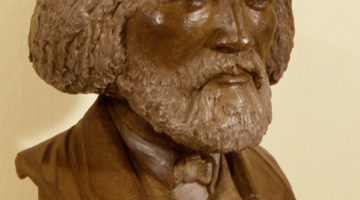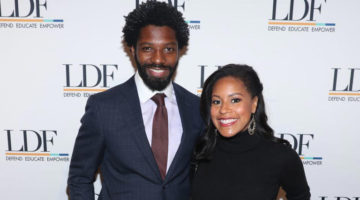Miami, Fla. – The tension between the Black community and Miami city commissioners over a proposal to dismantle the Virginia Key Beach Park Trust, which oversees plans to restore Miami’s only Colored beach and building a Black museum, boiled over when one speaker threatened to launch a recall effort against Commission Chairwoman Christian King if the city proceeds.
At the October 13 commission meeting, community activist Grady Muhammad, who lives in King’s district, said she may face a recall from political office if she votes for the city to replace the all-Black Trust with five commissioners and two appointees.
King, who would chair the trust, is the only Black city commissioner.
Muhammad said commissioners taking over the Trust may erase restoration plans including the museum on the historic landmark site to preserve the history of Miami’s only Colored Beach and Bahamians who settled in Miami before it was incorporated in 1896.
"You will be recalled," Grady said. "Stop micromanaging the Trust and allow them to do their job."
Grady said Blacks help build the City of Miami and their efforts should be recognized with a museum.
"You wouldn’t be a city if it wasn’t for Black people," Muhammad said. "Hispanics get what they want. Let us have our beach and museum. Preserve and respect our history."
Grady along with a host of Trust and Virginia Key Beach Park advocates urged city commissioners to reject the proposal and keep the Trust intact to continue its efforts to restore Virginia Key Beach and erect a museum to no avail.
With little discussion, city commissioners approved to appoint themselves to the Trust for one year and revisit the issue to determine if they want to continue in that role or go back to appointing people to the board.
Last month, city commissioners threatened to replace the Trust following an audit that suggested mishandling and misappropriation of funds and restoration projects that have been delayed for years. Whites and Hispanics also packed the commission chambers and stood in solidarity with Blacks suggesting not preserving the hardships they endured during segregation to open the only beach for African Americans is an affront to their culture.
The decision was a big disappointment to the Black community.
Community activist Leroy Jones said city commissioners taking over the Trust and not building a museum dealt a blow to the legacy of Athalie Range, the first Black city commissioner and community activist who helped preserve Miami’s only Colored beach.
Range’s grandson, Patrick Range Jr., was chair of the Trust before commissioners took it over "If Ms. Range was sitting here, we wouldn’t be having this discussion," Jones told commissioners. "But her grandson is here and it was the last project she worked on. It’s important to keep the Trust and build the museum so the Black community can have something, to say this is ours."
Thelma Gibson, a former city commissioner and whose husband also served on the same board, pleaded with commissioners to do what’s right for generations of Blacks.
She said it’s unfair for city commissioners to be Trust members when most of them don’t know the history behind Miami’s only Colored beach.
In contrast, Gibson said current trust members’ ancestors were part of the movement to open the beach for Blacks.
"Blacks came together because we couldn’t go anywhere to swim," she said. "Blacks fought hard to have a beach for Colored people, and the Trust is doing a good job to improve it and preserve it. Let us have something we have control over."
Patrick Range Jr., in a 20-minute Trust’s case in a last-ditch effort to keep the board together, and he denied the accusations about mishandling funds.
He also asked for an apology from city commissioners who he claimed made slanderous remarks about the Trust over the audit.
"Out of fairness, we should receive an apology from this board for slanderous things said about us," Range said. "Trust members’ reputations were affected by the comments. Without evidence it was unfair and unjust."
Range said the audit suggested concerns with payroll and other financial issues but were exaggerated.
He said the audit treated the Trust like running a business, but the group is willing to address any concerns with city commissioners.
"We are not a business and shouldn’t be held to the same standards of a business," he said. "Our budget is in line with payroll and expenses, with no mis characteristics. The Trust and the master plan for Virginia Key Beach Park is to have a museum for children and grandchildren to learn about our Black history in Miami. And that’s what it’s all about."
Range said Miami-Dade rejects the idea of a Black museum on Virginia Key Beach, and now it seems that city commissioners don’t embrace the project as well.
"The county doesn’t want to see a museum built on Virginia Key," he said. "Our plan is to not only have a firstclass museum but a resilient facility to address sea level rise. You all have a chance to champion this."
Range told the South Florida Times that although the Trust was disappointed in the vote, former members plan to stay involved in some capacity to ensure the restoration efforts continue, including building the museum.
"We’re talking about what we can do to put ourselves in a better position to ensure the construction of the museum," he said. "We are regrouping to
figure out what we can do and get the word out to the community about what happened and get everyone involved to make sure the museum gets built."
But several speakers support city commissioners taking over the Trust.
Tangela Sears said the museum has been proposed for years and the building is no closer to being built today than it was in 2005.
She said King chairing the trust would protect the efforts to restore Virginia Key Beach Park and Black history behind Miami’s only Colored beach.
"The museum was in the plans for years," she said. "Commission Chairwoman King, who was recently elected, would do a good job to preserve the beach."
Billy Hardemon, a former legislative aide in Miami-Dade and lobbyist, said it’s time for new leadership to oversee the revitalization of Virginia Key Beach Park since the conditions have not improved for years.
"If you can’t swim in it, it’s not a beach," he said. "It’s a disgrace to call it a beach if you can’t swim in it because it’s unsafe."
Hardemon said he loves and has a lot of respect for Athalie Range, Thelma Gibson and other Blacks who made the beach possible.
But he said it’s time to give King an opportunity to make Virginia Key Beach what it should be today.
"Please, I’m asking her colleagues to help her make Virginia Key Beach something we can all be proud of," he said.
Miami-Dade Commissioner Keon Hardemon, who was previously a city commissioner, said the county will lend a helping hand in efforts to restore the beach.
He admitted not enough money has been set aside by the county and sought a better city and county partnership to get the beach restored and build the museum.
He said the county has been holding on to about $20 million for years to help build the museum.
"I would like to see the beach restored and have activities there again," he told city commissioners. "I have respect for our history, and I must say we can’t hold on to history if we don’t want to make sure the future is bright. I’m here to show support to city commissioners and offer everything you need on the county’s side to reach your goals."
Commissioner Ken Russell, who was the only no-note, said he would rather appoint a Trust member who is familiar with the Virginia Key Beach restoration efforts.
"I don’t want to be there, I would appoint someone who has better knowledge and is an expert on Virginia Key," he said.
Vice Chair Joe Carollo said he doesn’t have a problem with commissioners serving on the trust for one year.
"I don’t mind to appoint us if we want and revisit it in a year," he said. "At the end of day, no matter what happens, we are responsible."










No Comment